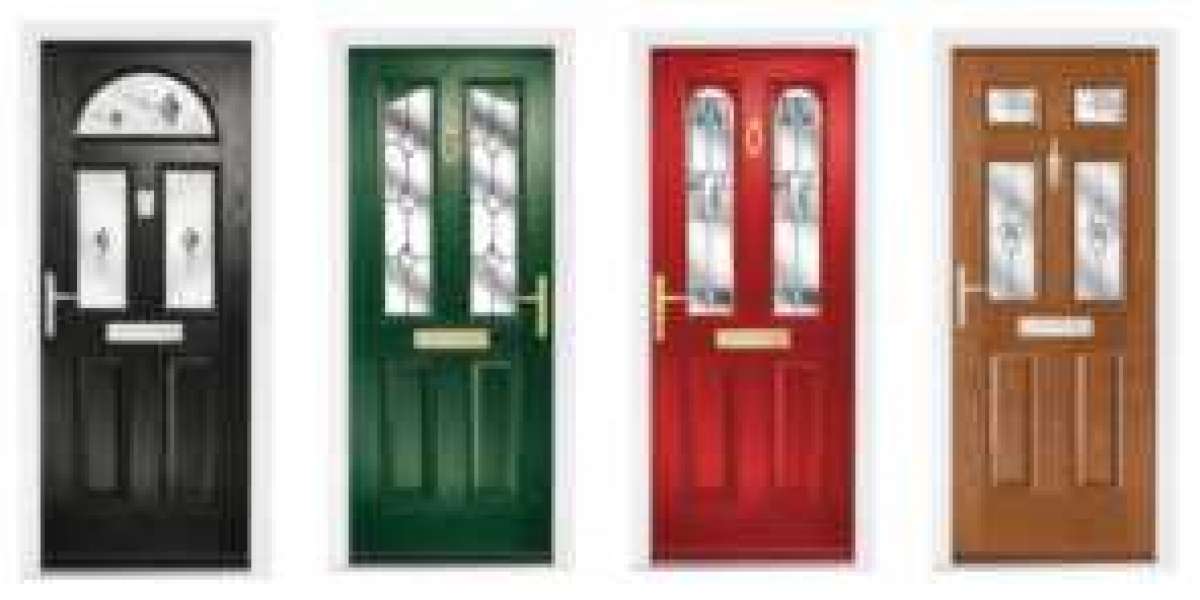Quick Door Repairs: A Comprehensive Guide
Doors are a crucial part of any home, serving both functional and visual purposes. With time, however, they can become used, damaged, or inefficient, resulting in a variety of problems from drafts to security concerns. Luckily, numerous door repairs can be managed quickly and efficiently with the right tools and methods. This guide provides a comprehensive summary of common door issues and how to address them, guaranteeing your doors stay in leading condition.
Typical Door Issues
- Sticking or Binding Doors
- Loose Hinges
- Damaged Locks
- Gaps and Drafts
- Broken Panels or Glass
- Worn Weatherstripping
Tools and Materials Needed
- Screwdriver (flathead and Phillips)
- Hammer
- Wood chisel
- Wood filler
- Sandpaper
- Paint or stain
- Weatherstripping
- Replacement hinges
- Lock repair kit
- Glass repair set
- Silicone sealant
Sticking or Binding Doors
Causes:
- Warping due to humidity
- Misaligned hinges
- Inflamed wood
Solutions:
Adjust Hinges:
- Loosen the hinge screws slightly.
- Tap the composite door panel repair into place with a rubber mallet.
- Tighten up the screws once again.
Sand the Edges:
- Identify the sticking location.
- Gently sand the edges with fine-grit sandpaper.
- Clean off the dust and test the door.
Lube the Hinges:
- Apply a silicone-based lube to the hinges.
- Open and close the door numerous times to work in the lubricant.
Loose Hinges
Causes:
- Overuse
- Poor installation
- Loose screws
Solutions:
Tighten the Screws:
- Use a screwdriver to tighten all hinge screws.
- If the screws are stripped, eliminate them and fill the holes with wood filler or a wood matchstick.
- Reinsert the screws and tighten up.
Replace the Hinges:
- If the hinges are badly damaged, change them with new ones.
- Ensure the brand-new hinges match the existing ones in size and finish.
Damaged Locks
Causes:
- Wear and tear
- Required entry
- Rust
Solutions:
Lubricate the Lock:
- Use a graphite or silicone-based lube to maximize the system.
- Insert the key and turn it several times to distribute the lubricant.
Replace the Lock:
- If the lock is beyond repair, replace it with a new one.
- Follow the producer's guidelines for installation.
Gaps and Drafts
Causes:
- Worn weatherstripping
- Misaligned composite door repair tips frame
- Loose hinges
Solutions:
Replace Weatherstripping:

- Remove the old weatherstripping.
- Procedure and cut the brand-new weatherstripping to fit.
- Install the brand-new weatherstripping, ensuring it is tight and secure.
Adjust the Frame:
- Check for gaps around the frame.
- Usage shims to adjust the frame and make sure a correct seal.
Seal Gaps:
- Apply silicone sealant to any spaces around the composite door repair experts frame.
- Smooth the sealant with a putty knife and enable it to dry.
Broken Panels or Glass
Causes:
- Accidental damage
- Vandalism
- Old and fragile products
Solutions:
Replace the Panel:
- Remove the damaged panel.
- Procedure and cut a new panel to fit.
- Set up the new panel and secure it with suitable fasteners.
Repair or Replace Glass:
- Remove the broken glass carefully.
- Measure and cut a new piece of glass to fit.
- Install the brand-new glass and secure it with glazing points and putty.
Worn Weatherstripping
Causes:
- Age
- Sun direct exposure
- Weather
Solutions:
Inspect Regularly:
- Check the weatherstripping for indications of wear.
- Replace it as needed to keep an airtight seal.
Choose Quality Materials:
- Invest in premium weatherstripping that can stand up to the elements.
- Think about products like silicone or EPDM rubber for sturdiness.
Frequently asked questions
Q: How frequently should I inspect my door hinges?A: It's a good concept to inspect your door hinges at least as soon as a year, specifically if you live in a damp or seaside area. Regular inspections can assist you catch concerns early and prevent more substantial damage.
Q: Can I repair a sticking door without eliminating it?A: Yes, in most cases, you can adjust the hinges or sand the edges without eliminating the composite patio door repair. Nevertheless, if the door is seriously warped or damaged, you might require to remove it for a more comprehensive repair.
Q: What type of lube is best for door locks?A: A silicone-based lubricant is generally the very best option for door locks. It supplies a smooth, long-lasting service without bring in dirt or grime.
Q: How can I avoid gaps and drafts around my doors?A: Regularly check and replace used weatherstripping, make sure the door frame is properly lined up, and utilize silicone sealant to fill any gaps. Furthermore, keeping the door and frame well-kept can assist prevent concerns from establishing.
Q: What should I do if my door lock is jammed?A: First, attempt lubricating the lock with a silicone-based lube. If that does not work, you may require to take apart the lock to tidy and repair the mechanism. If you're not comfy doing this yourself, consider calling a professional locksmith.

Maintaining and repairing your doors is essential for both the functionality and looks of your home. By addressing common issues like sticking doors, loose hinges, and damaged locks, you can ensure your doors remain in top condition. Routine maintenance and timely repairs can extend the life of your doors and save you money in the long run. With the right tools and techniques, many door repairs can be dealt with rapidly and efficiently, keeping your home secure and comfortable.
By following the actions detailed in this guide, you can take on a variety of door problems and keep your home looking its best. Whether you're a DIY enthusiast or a house owner looking for practical services, these suggestions and tricks will help you keep your doors with confidence.







